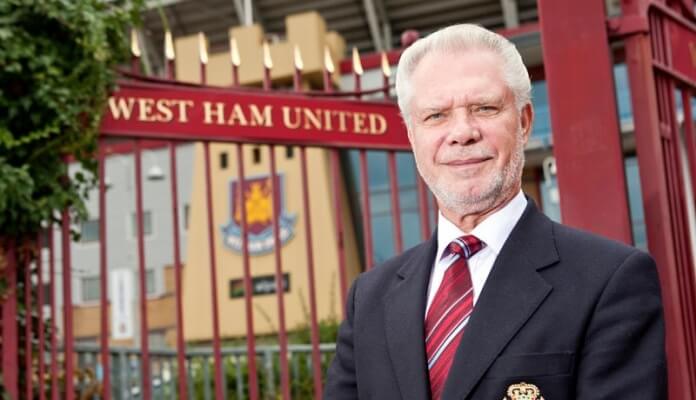We all get lucky from time to time, but in business luck could be your margin for success. So when lady fortune smiles on you, it's good to know how to capitalise. Here's how it is done.
If You Can’t Be Good, Be Lucky
We all get lucky from time to time, but in business luck could be your margin for success. So when lady fortune smiles on you, it's good to know how to capitalise. Here's how it is done.

Admit it or not, luck is part and parcel of what it takes to succeed in business. Fortunate timing, unexpected events and bad happenings that come good often lead to surprise success stories. Here we ask some leading entrepreneurs how to harness luck and turn it to your advantage.
Take advantage of your circumstances: Dame Mary Perkins, Specsavers
Dame Mary Perkins admits she has experienced her fair share of luck in business. Her choice of profession, the period in which she started her business and the fact that she met her husband when she did all contributed to the stellar success of the Specsavers brand.
“We’ve definitely been lucky; lucky that I’m an optometrist, lucky that I met my husband at university and he thinks the same as I do, and lucky for the time that we started up. It was when Margaret Thatcher was in power and, although taxes were high, it was a time when there wasn’t the red tape around that there is now.
"You can’t just sit in your house and wait for a lucky break" - Michelle Dewberry
“When we first got going we also benefitted from deregulation in the market, which gave us a freer hand to advertise our products and services. Today, advertising is one of our big differentiators and the ability to shout about what we do has helped enormously.”
Make the best of a bad situation: David Gold, Ann Summers
David Gold says luck comes in a number of different forms and good luck can sometimes be disguised as bad, depending on how you react to it. He believes that a stroke of ‘bad luck’ when he was a fledgling businessman propelled him to become the retail magnate he is today.
“I could demonstrate a number of times when I’ve cursed my luck. I was running my little bookshop on Charing Cross Road and had been at it for three years; my fortunes had turned for the better. Then suddenly the landlord told me my lease was up and I had to get out.
“Because of that bad luck, I took the money I had made and put deposits on four stores. Two of them I’ve still got to this day and they are valued at £10m. More importantly, however, the other two I bought for £20,000 each and ten years later I sold them for £3m – and that was when £3m was a lot of money!”
Luck is a factor but hard work makes the difference: Adrian Moorhouse, Lane4
Adrian Moorhouse was brought up to not believe in luck, but he acknowledges that it plays its part in business. While hard work and competence will get you far, most successful entrepreneurs have experienced some form of fortune in their career. For Moorhouse it was meeting his co-founders.
“I met my co-founders at Loughborough University. They had been commissioned by 3M to train their managers like coaches train athletes; they had taken a chance because they thought it would be useful.
“I was working for the Olympics Association at the time and I happened to share a room with one of the guys. I saw that the idea had legs and that these academics were undercharging for the service, so I said, ‘let’s start a business’. It stemmed from that chance encounter.”
Never look a gift horse in the mouth: Kanya King, MOBO Awards
Kanya King wasn’t the first to have the idea for an event celebrating music of black origin. Many had tried and failed before her. Although there are plenty of reasons why King succeeded, she admits a chance encounter with a senior television executive led to a huge boost for her start-up business.
“In the beginning I’d be talking to people about the MOBO awards and nobody had heard of it. They didn’t understand it. We launched the concept at the Ministry of Sound and generated a lot of interest and a lot of media coverage.
“Then, at Arsenal’s football ground, I happened to bump into a gentleman who I didn’t know at the time was managing director of LWT. He was looking for his son and I helped him out. Afterwards we got talking and I said, ‘I’ve got a great idea’ – that’s probably what everyone says to him – and I told him about the concept.
“Lo and behold, I sent in a proposal and they called me in for a meeting. We showed them all the coverage generated at the launch and the plans that we had and they thought it was fantastic.”
It’s good to start-up in an evolving market: Sir Tom Farmer, Kwik-Fit
Sir Tom Farmer had the good fortune of starting his tyre retail business just as rules affecting the sale of goods were changing in his favour. In the 1960s the practice of discounting on manufactured goods was legitimised and Farmer was one of the first to slash his prices.
The new wave of discount shops drew interest from the press and as one of the first to make his move Farmer landed an interview with a major local paper. The response from customers who read the article was overwhelmingly positive and Farmer has never looked back.
“The law was just changing so discounters were popping up all over the place. I opened up a shop in Edinburgh. It was £5 rent, £5 to my mother for housekeeping and £5 to go out at the weekend. One of the newspapers decided to write an article about me.
“I think I exaggerated slightly because they asked me about who my suppliers were; they could still get into trouble at that stage so I told them how I get in my van in the middle of the night and meet people in dark lay-bys. I never thought too much about it afterwards.
“A couple of weeks later one of the Sunday papers came in and the headline in the front page had my name on it. I always go to Mass on a Sunday, I’d have a quick cup of coffee and go and open the shop for 11am. That particular Sunday there were 42 cars outside. It never stopped from that moment.”
Luck is not the same as effort: Michelle Dewberry, The Apprentice
Michelle Dewberry once incurred the wrath of a successful person by innocently suggesting they were ‘lucky’. It taught her two valuable lessons; the first is that most wealthy people are hard workers; the second is that you shouldn’t call a hard worker lucky.
“I was once at a very famous and wealthy lady’s house, which is very beautiful, and I remember telling her she was so lucky, considering where she lives. She said, ‘Don’t you ever say that’, and really lost her temper saying, ‘Everything in my life I’ve earned’.
“You’ve got to create your own luck. You can’t just sit in your house and wait for a lucky break, you’ve got to make it happen.”
Thanks for signing up to Minutehack alerts.
Brilliant editorials heading your way soon.
Okay, Thanks!

